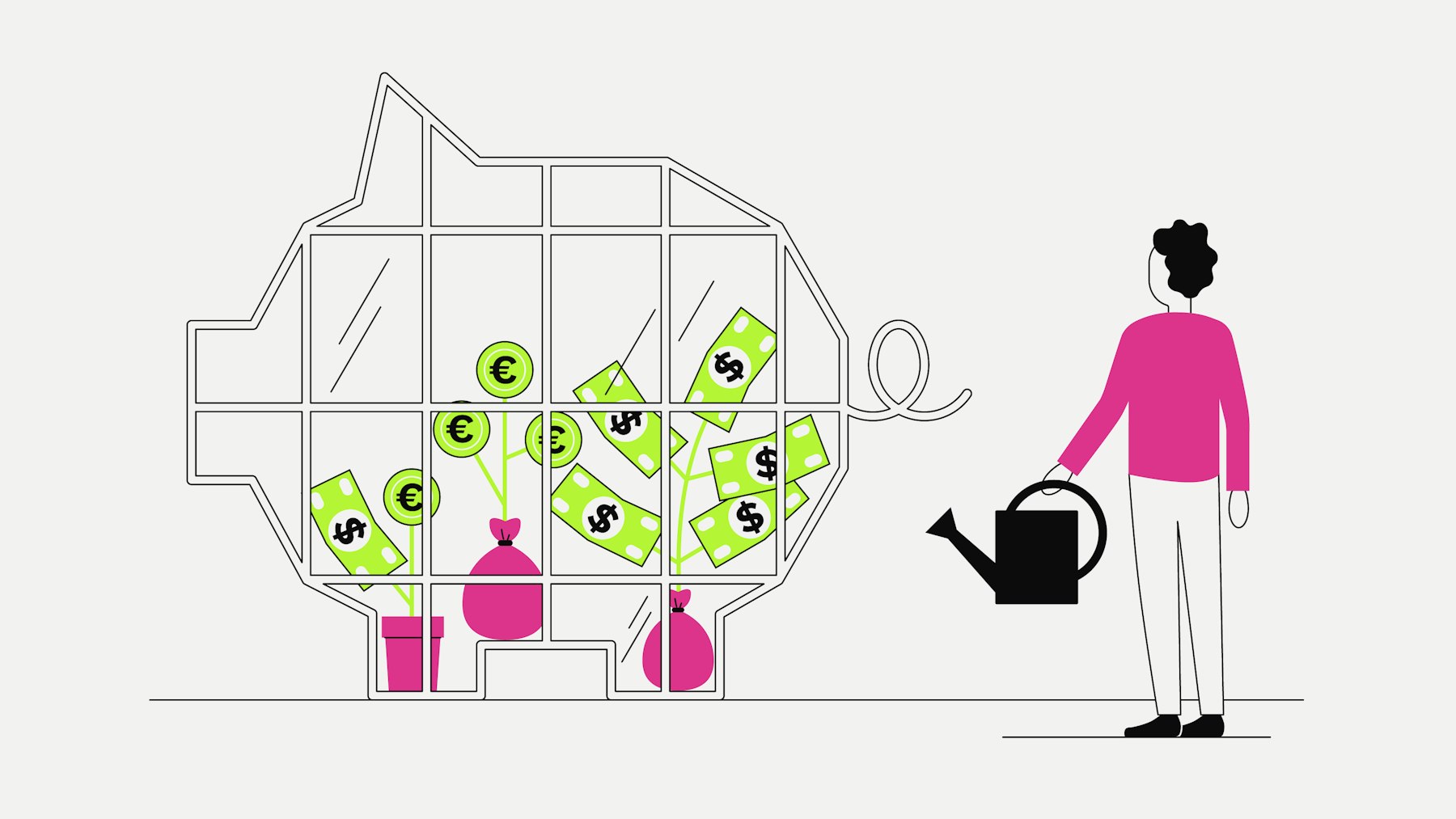What is private finance?
Private finance is about managing your money responsibly to achieve your personal financial goals, usually over a longer period – essentially throughout your entire life.
Careful and regular money management is a prerequisite for shaping your life securely and independently, whether you're saving for retirement or a car. Organising your private finances means assessing your financial needs based on your income and allocating your money to necessary expenses. The most important thing is to keep track of your expenses so you can save and invest money.
Money makes the world go round
From small things like buying your morning coffee to taking out a loan – we make financial decisions every day. That’s why it’s important to learn to handle money carefully early on and to review your finances regularly.
Studies show that dealing with money is considered one of the most significant causes of stress among adults. Even wealthy people face money problems and financial stress – most people experience setbacks at some point. So it’s not just about how much you earn, save or invest, but also about how content you can be with what you have.
What does “budgeting” mean?
Part of managing your private finances is budgeting: creating a structured plan to divide your money into income and expenses. This budget plan should help you identify where you could save more and spend less.
After creating a budget, you track your income and expenses by recording all financial movements regularly. Basically, a budget shows how money is allocated to everyday living costs, your wants, reserves for unexpected emergencies, and money you want to invest.
Private finance is about assessing your financial needs based on your income and regularly allocating your money to necessary expenses.
Why do I need a household budget?
Budgeting involves planning income and expenses within a set period. A household budget helps you secure yourself financially. With a plan, you can keep an eye on your long-term financial goals, your saving progress and your spending. A budget also helps to avoid bad spending habits, such as impulse purchases – buying things you didn’t plan to, but chose spontaneously.
A budget helps you make better decisions and reduces the chances of overspending or falling into debt. A household budget is always useful – regardless of your lifestyle or household situation. It helps people with low incomes to make their money last until the end of the month but can also be useful for high earners. Don’t forget: it’s not about how much you earn, but how much you save. Also remember that investing is the key to your financial independence.
A household budget helps you keep track of your long-term financial goals, your saving progress and your spending.
Spreadsheet for your budget
There are several tools available to help you create a budget plan. For example, you can set up a digital spreadsheet in Excel or write your budget plan in a notebook. If that’s too much effort, you can choose from various free templates available online.
Mobile apps
Alternatively, there are great budgeting apps, such as Pocket Guard. This app shows you how much money you still have left to spend within your budget. With Wally, you can adjust your budget as needed.
Budgeting techniques
One of the most widely used and efficient budgeting techniques is the 50-20-30 rule.
